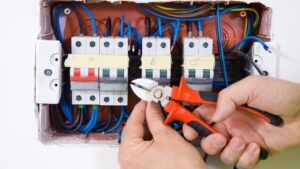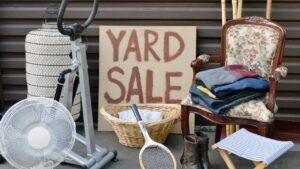In Singapore, home-based F&B businesses are overseen by the Singapore Food Agency (SFA), the Housing & Development Board (HDB), and the Urban Redevelopment Authority (URA).
While these home cafes, private dinning and other F&B businesses currently do not need an SFA license due to their small scale and lower food safety risk, they are still subject to a host of regulations.
Breaching these regulations can lead to serious consequences, including enforcement actions, food recalls, and business closure. Here are the critical limitations and prohibitions that home-based F&B entrepreneurs must be aware of to operate responsibly and legally.
1) Home-Based F&B Business Can’t Sell To Other Food Businesses
Home-based businesses cannot sell their food to SFA-licensed food establishments, such as hawker stalls, cafes, or restaurants. This is because licensed F&B businesses are required to source their food from other licensed premises, and home-based businesses are not considered licensed establishments.
Licensed food retailers are only permitted to sell food that is either prepared on their own licensed premises or sourced from other licensed establishments.
2) Home-Based F&B Business Can’t Offer Catering Services or Buffet Lines
Home-based businesses are strictly prohibited from offering food catering services, which include providing buffet lines or packed meals. The rationale is that the scale of catering operations poses higher food safety risks that a home kitchen is not equipped to handle.
The reason is directly related to food safety risks. Catering, by its nature, involves large volumes of food that must be held at safe temperatures over an extended period, from preparation to transport to serving. Home kitchens are typically not equipped with the industrial-grade holding cabinets and sophisticated temperature control systems necessary to prevent the growth of pathogens.
As a result, only SFA-licensed food businesses with appropriate facilities are authorized to offer catering services.
3) Home-Based F&B Business Can’t Sell at Temporary Fairs
Similar to the rule against supplying food retailers, home-based businesses are not allowed to prepare food at home to sell at temporary fairs. This prohibition also extends to selling to other stall holders at these events.
This is because temporary fair stalls, like other F&B businesses, are restricted to selling food that is legally imported, prepared on-site, or sourced from licensed establishments.
However, the SFA endorses co-working kitchens that home-based entrepreneurs can book to scale their operations and legally sell their products at food fairs.
4) Home-Based F&B Business Can’t Sell Ready-to-Eat Raw Seafood
Home-based businesses are strictly forbidden from selling ready-to-eat (RTE) raw seafood, which includes items like sashimi, raw oysters, and raw marinated seafood.
This category of food is classified as high-risk because it is not subjected to a heat treatment process that would eliminate microbiological contaminants.
Safely preparing and handling these products requires specialized facilities for preserving the cold chain and dedicated, segregated processes to prevent contamination, which are typically absent in a small-scale home kitchen.
5) Home-Based F&B Business Can’t Use Unlicensed or Unverified Ingredients
Home-based businesses are required to use ingredients that are legally imported or sourced from licensed manufacturers and suppliers.
It is explicitly forbidden to source ingredients from other home-based businesses, as they are not licensed establishments. Similarly, food items brought back from personal travels are considered for private consumption only and cannot be used for commercial purposes.
This rule is in place to ensure that the entire food supply chain is traceable and verified, preventing a potential health risk from contaminated or unverified ingredients.
6) A Home-Based F&B Business Isn’t A Factory Or Restaurant
Home-based F&B operations must be kept at a small scale and must not cause inconvenience to neighbors. This means avoiding excessive noise, smoke, smells, litter, or creating a high volume of human and vehicle traffic that could pose a nuisance.
Enforcement of this rule is largely complaint-driven so make sure patrons of your home cafe or private dining experience aren’t disturbing your neighbours.
Your home cannot be used as a large-scale storage or distribution center, nor can you engage in frequent loading and unloading of goods.
The scheme also prohibits the use of industrial-grade equipment, restricting entrepreneurs to domestic-grade kitchen appliances. This operational limitation is a central point in the public debate about the fairness of the market.
7) Home-Based F&B Business Can’t Hire External Staff
The business must be operated exclusively by the registered occupants of the home, whether they are the owners, registered occupiers, or tenants (with the owner’s consent).
This is a defining feature of the scheme, designed to maintain its small-scale, home-based character.
You are not permitted to officially employ or pay a salary to non-registered occupants.
8) Home-Based F&B Business Can’t Display Physical Advertisements
To prevent residential areas from taking on a commercial appearance, home-based F&B businesses are not allowed to display any physical advertisements, signboards, or posters at their premises. Promotion must be done on online platforms such as social media, websites, or messaging apps.
Quick Summary Of What Homed-Based F&B Businesses Can & Can’t Do
| What You CAN Do | What You CAN’T Do |
| Sell food directly to individual customers. | Sell food to other licensed food establishments like cafes, restaurants, or hawker stalls. |
| Operate a business from your HDB flat or private residence. | Provide large-scale food catering or buffet lines. |
| Use domestic-grade kitchen appliances. | Use commercial or industrial-grade equipment. |
| Promote your products on social media or online platforms. | Display physical signboards or advertisements at your home premises. |
| Run the business with household members only. | Hire external staff or non-residents to assist in operations. |
Conclusion
If your home-based F&B business is doing well and you want to further expand your business beyond your house, read our guide on the licences required to run a F&B business in Singapore to find out what’s next.






